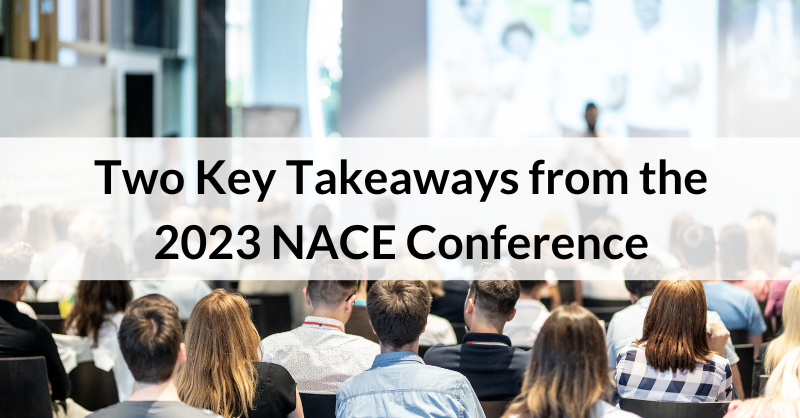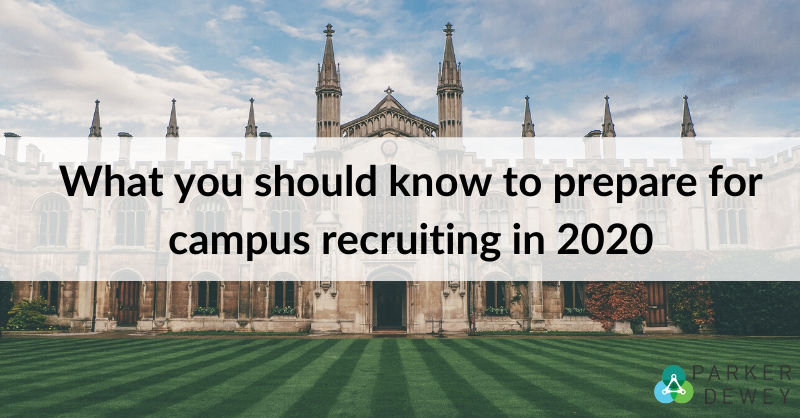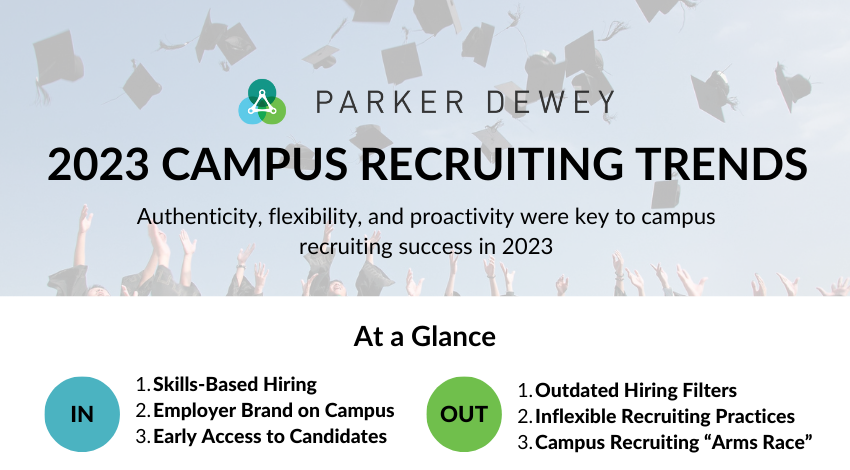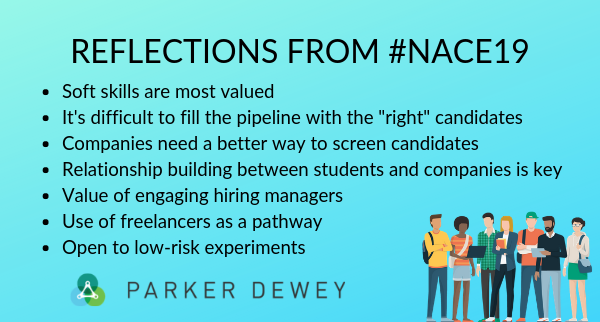
Two Key Takeaways from the 2023 NACE Conference
Last week, members of the Parker Dewey team joined the thousands of recruiters, career services professionals, and others invested in early-career student engagement at the annual National Association of College & Employers (NACE) conference. As always, this gathering was an incredible opportunity to hear from both stakeholders with interests that are aligned: how to best reach and engage students for early-career professional development opportunities. For me, two key themes emerged: driving meaningful engagement, and delivering return on investment.
First, the challenges faced by employers were the same irrespective of industry, size, or location. Big 4 accounting firms and smaller companies highlighted the difficulty of recruiting students for accounting roles. Fortune 500 corporations and rapidly growing tech firms shared their challenges in meaningful student engagement in a sustainable, authentic way. Both well-known consumer brands and B2B companies shared the challenges of building employer brand with students who had preconceived notions or never heard of them.
Unfortunately, the standard playbook of more emails, more online sessions, and more content is not working well enough as employers are finding it increasingly difficult to get through the noise. Some of these processes are even hindering access and damaging employer brand.
Which brings us to the second theme. While there was a distinct split between high-lift and low-lift programs, the level of effort or cost didn’t correlate with the outcomes. For example, one of the sessions shared a diversity accelerator program that required a massive investment of time, but ultimately led to just a handful of hires. Another program spent tens of thousands of dollars to create simulations to build brand awareness, but found the only students participating were those who were already planning to apply.
What excited me about this year’s conference (and why I love NACE every year) was hearing the innovative strategies from employers and schools who are collaborating to address these challenges, improve the outcomes, and don’t require a massive time or financial investment. The reason they work: these efforts focus on how college students really want to be engaged.
During the conference, we continued to hear more about how:
-
Students are hungry to build real relationships, and GE’s program between students and its ERG members helped students build the relationships they find most valuable in landing a job.
-
Students are interested in exploring careers earlier, and Northwestern Mutual’s early access program provides students with the insights to do so.
-
Students want to learn about companies beyond “what’s on Google,” and Comcast highlighted how it’s showcasing the breadth of opportunities in data analytics, marketing, HR, finance, and other departments that students may not realize are available there.
And I’d be remiss not to mention how excited I was to hear how Micro-Internships are becoming a vital part of the campus recruiting process. In fact, this was a key topic during a session with several Florida colleges and employers. As they shared, these short-term, paid, professional assignments are a great example of engaging students how they actually want. And since Micro-Internship programs don’t require a six-figure budget or hours of effort, this approach has been easy to introduce for any size organization.
To hear more about these exciting programs that we’re seeing real-time, we invite you to join us tomorrow, Wednesday, June 14, as we share some specific case studies of company-led Micro-Internship programs and the impact they are having to augment their campus recruiting strategy and talent pipeline. The session will be recorded if you can’t make it to the live event, and we always welcome an opportunity to connect real-time to brainstorm additional ways we can support your early career recruiting goals.




